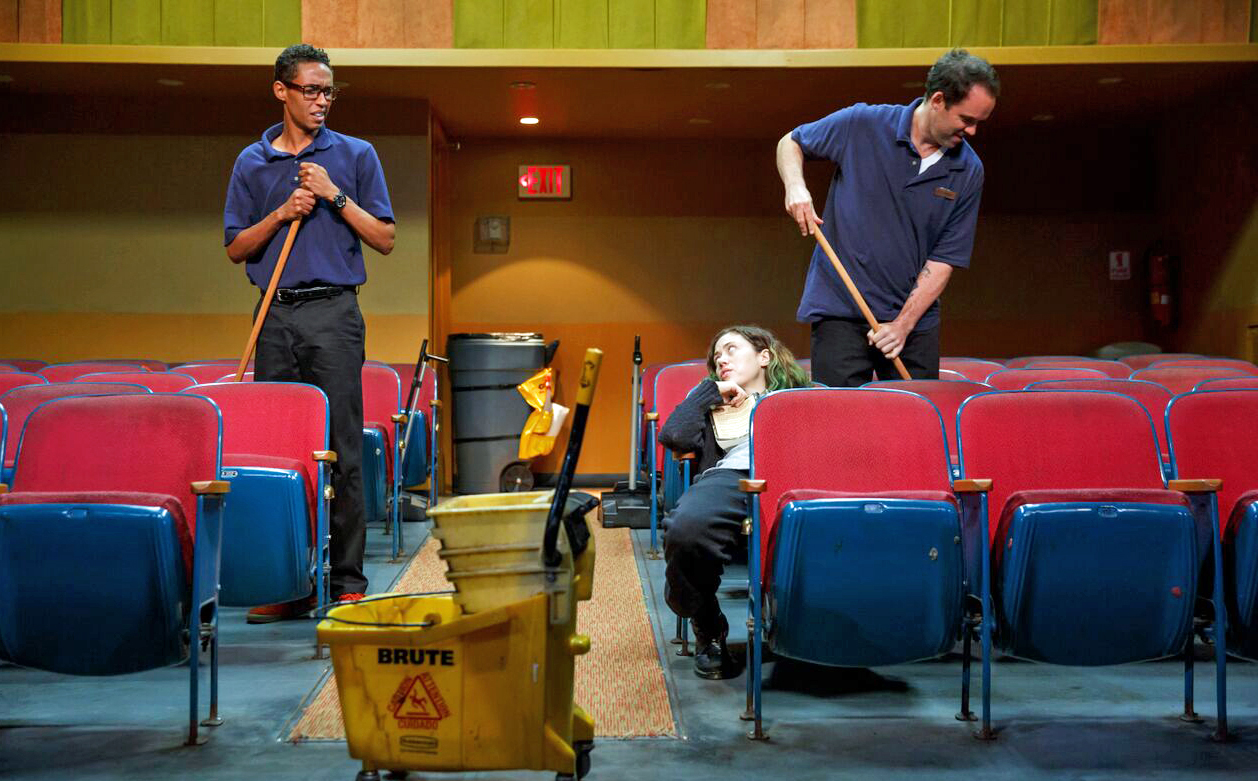
The Flick, by Annie Baker. Directed by Sam Gold. Barrow Street Theatre, New York, September 2015
I enjoy long plays. I was entranced when I saw Eugene O’Neill’s Strange Interlude which ran five hours including a dinner break. And Wagner’s music dramas never fail to keep us involved despite their great length.
Therefore I did not object to The Flick as many audience members did. The long running time did not bother me.
Rarely does a play foster such arguments. The Flick won a 2014 Pulitzer Prize for “a distinguished play dealing with American life,” Charles Isherwood wrote in the New York Times that it was “wondrous” and Jesse Green in New York magazine wrote that it was “orgasmically expressive.”
Other theater-goers, however, found its extremely slow pace to be infuriating. My conclusion: The Flick is worth your time and money. But the hyperboles of those critics quoted above are over-sell.
The play is a slice of life in an aging movie theater, populated by a female projectionist, Rose; an older usher, Sam, who resents being passed over for the projection job despite his seniority, and a new employee, Avery, who’s a movie nerd and is filling time before going to college.
It is profoundly sad to see how the characters fail to really hear each other. The relationships among these three are sensitive and touching, but playwright Baker drags out the exposition in a fashion that is needlessly mannered.
A prime example: The opening scene shows clearly that we’re in a shabby single-screen movie theater, facing rows of empty seats below a projection booth. A flickering light indicates that a movie is running. Ponderous orchestral chords from Bernard Herrmann’s score for The Naked and the Dead indicate that credits are rolling. We get all this, clearly, within ten seconds. Yet the music continues for more than two minutes before we see anything happen, let alone hear the opening lines.
Eventually we meet the two ushers who clean up the crumbled popcorn and the sticky soda residue on the floor after the audience leaves, and then we meet the projectionist. All three are under-achievers, working for low wages with low expectations for the future — a reflection of today’s America. Much of the by-play among these lonely people is absorbing. But dragging out the telling does not add anything.
Still, real theater buffs should try to see the play.
My reaction was skewed negatively by one of the players who joined the cast in September of 2015. Nicole Rodenburg had a volume level much lower than her colleagues. They were intimate and introverted while she was simply inaudible. Kyle Beltran was touchingly awkward as Avery and the excellence of his acting was even more obvious when you remember him in the lead role of Usnavi in In the Heights on tour and as a replacement in New York. Matthew Maher was sympathetic as the older usher.
This is a play that, despite its flaws, I’d like to see again with different players. And with the perspective of a new director who’s not as tied to one vision.
Read other reviews on The Cultural Critic